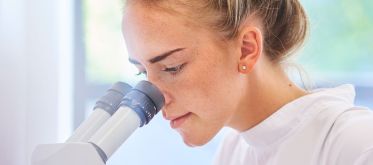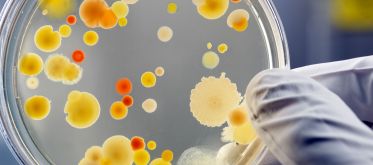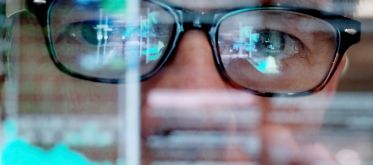Portal Our Laboratories
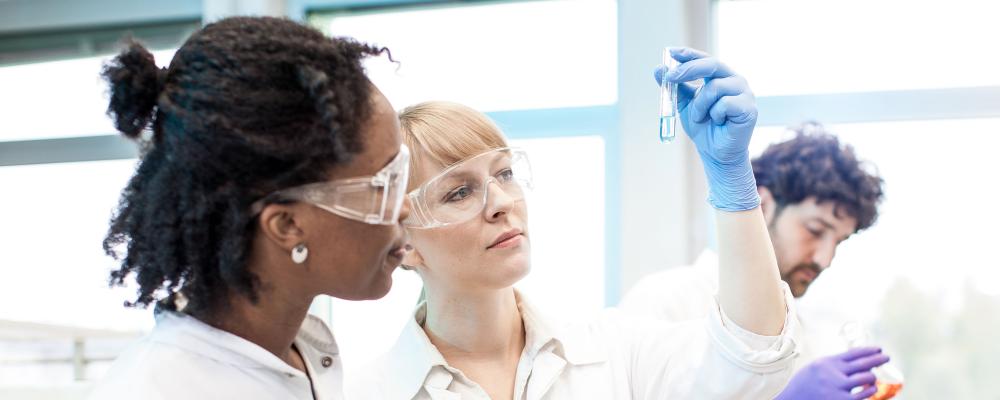
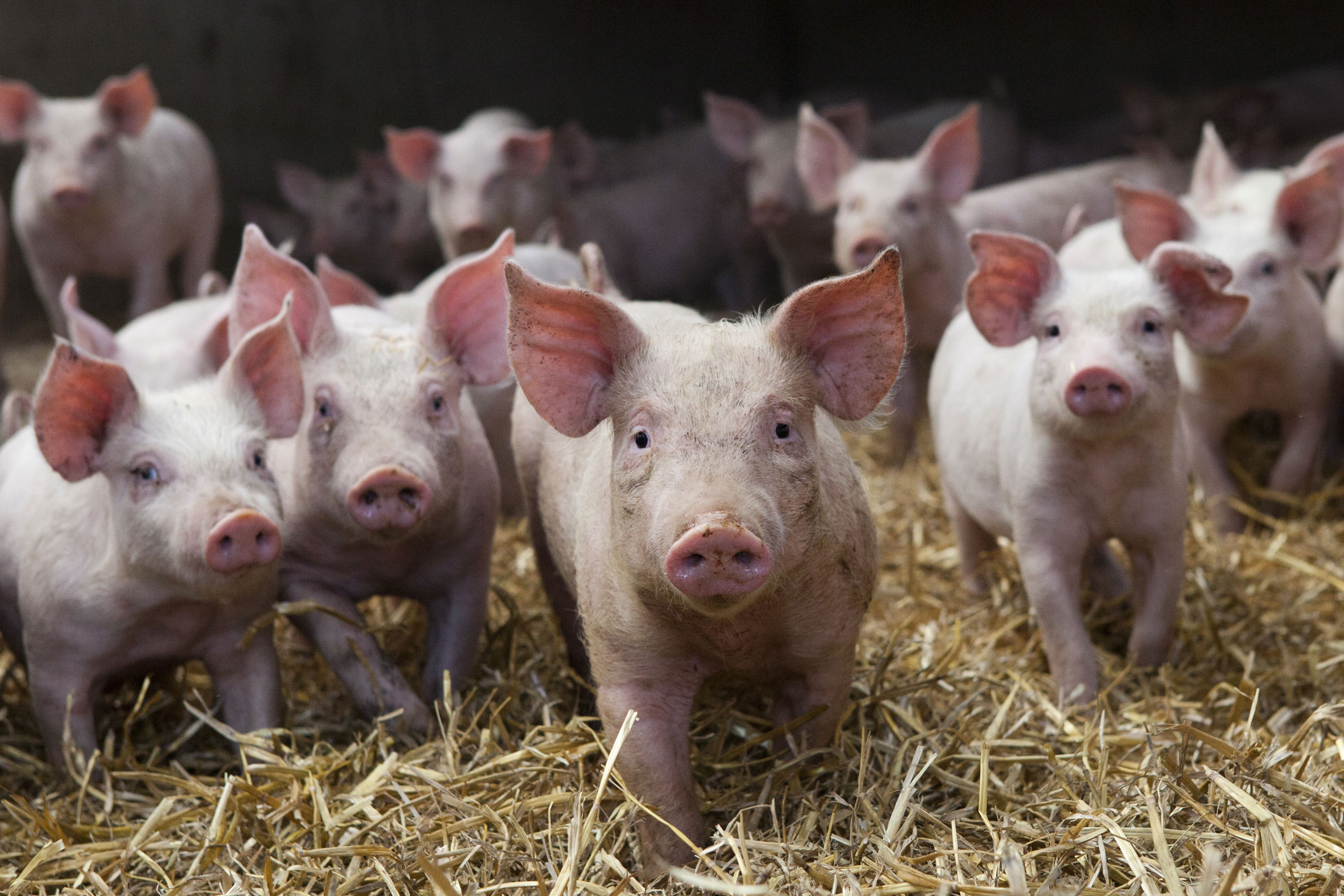
Ploufragan-Plouzané-Niort Laboratory
Director: Nicolas Eterradossi
Deputy Directors: Nicolas Rose and Benoît Charvet
The laboratory has four sites:
- two in Ploufragan: ANSES, BP 53, 41 rue de Beaucemaine, 22440 Ploufragan and ANSES, BP 53, 31 rue des Fusillés, 22440 Ploufragan;
- a site in Plouzané: ANSES, Technopôle Brest Iroise, Site Ifremer, CS 10070, 29280 Plouzané;
- a site in Niort: ANSES, 60 rue Pied de fond, CS 28440, 79024 Niort cedex, France;
- team: 204 employees spread out across eight research units, one joint technology unit, three experimental departments, one administrative and financial department, one quality management department.
The laboratory's missions
The laboratory has 204 employees, of whom half are scientists and the other half are technicians or technical and administrative staff, in over 11,000 m² of laboratory space, meeting L2 and L3 microbiological containment standards.
The laboratory's work focuses on the poultry, rabbit and pig (Ploufragan), freshwater and saltwater fish (Plouzané and Ploufragan) and ruminant (Niort) sectors.
The laboratory resulted from the merger of the Ploufragan laboratory with that of Plouzané in 2006, and then with that of Niort in 2018. These three laboratories were themselves part of different departmental applied research structures (experimental poultry station and swine diseases station for Ploufragan, "goat" branch of the Deux-Sèvres departmental veterinary laboratory for Niort) or belonged to veterinary services (fish diseases laboratory for Plouzané). These different structures were incorporated into the National Centre for Veterinary and Food Studies (CNEVA) in 1989 and then into the French Food Safety Agency (AFSSA) in 1998, which became ANSES in 2010.
Its research and reference activities require great proficiency in advanced techniques in numerous disciplines, such as bacteriology, virology, immunology, parasitology, molecular biology, epidemiology, animal behaviour and ecotoxicology. They have a fourfold purpose: animal health, animal welfare, food safety and worker health.
It has high-level technical facilities to carry out these activities, including ANSES's national high-speed sequencing platform.
Supported by local authorities (urban, departmental, regional) on its various sites, the laboratory focuses on conducting high-level, interdisciplinary and integrative applied research, in line with the needs of its supervisory ministries, the risk assessment departments within ANSES, and the sectors and inter-professional bodies involved in animal production or the food industry.
To know more about the Laboratory
>> See the leaflet (PDF)
Latest laboratory news
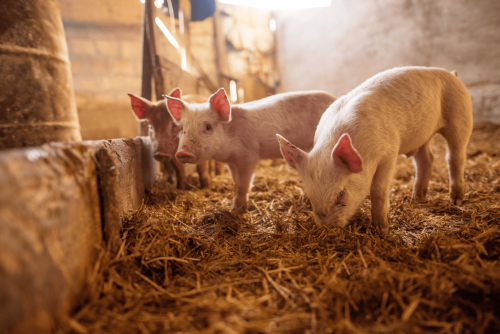
Understanding the impact of pathogenic bacteria in the intestinal microbiota of pigs and chickens on human health
The presence of certain bacteria or chemicals can modulate the intestinal microbiota of pigs and chickens. Studying these factors could help at the farm level to tackle micro-organisms that are pathogenic to humans, such as Campylobacter and Salmonella.
The laboratory's units
- Epidemiology, Health and Welfare (EPISABE), in Ploufragan
- Viral Genetics and Biosafety (GVB), in Ploufragan
- Hygiene and Quality of Poultry and Pig Products (HQPAP), in Ploufragan
- Mycoplasmology, Bacteriology and Antimicrobial Resistance (MBA), in Ploufragan
- Ruminant Diseases and Welfare (PBER), in Niort
- Virology, Immunology and Parasitology in Poultry and Rabbits (VIPAC), in Ploufragan
- Pig Virology and Immunology (VIP), in Ploufragan
- Fish Virology, Immunology and Ecotoxicology (VIMEP), in Plouzané
Three experimental departments:
- Department for breeding and experimentation in poultry and rabbits (SELEAC)
- Department for production of specific-pathogen-free pigs and experimentation (SPPAE)
- VIMEP Unit for experimentation in farmed fish
CPER-Elephans (2015-2020)
State-Region plan contract
Funding: Brittany Region, Côtes d’Armor département, Saint-Brieuc Armor Agglomeration, ANSES, and European Regional Development Fund (ERDF)
The aim is the complete restructuring of the laboratory's conventional poultry experimentation centre on the Beaucemaine site in Ploufragan. The following operations have been planned:
- Demolition of 10 buildings,
- Construction of two buildings:
- Experimental building designed to assess the welfare and health of broilers for the purpose of "precision rearing".
- Changing rooms, offices, storage facilities and necropsy room for the Conventional Avian Experimentation Department (SELEAC) and facilities for the Epidemiology Unit (EPISABE), for the organisation of field visits and subsequent follow-up work.
- Adaptation, restructuring and equipping of existing buildings:
- Complete restructuring of the building for laying hens and pullets. Latest-generation aviaries and winter gardens were set up to study the welfare of the pullets and laying hens,
- Restructuring and enlargement of the hatchery,
- Equipping of various farm buildings with materials.
CPER-Infectio (2015-2020)
State-Region plan contract
Funding: European Regional Development Fund (ERDF) and ANSES
A set of scientific equipment was purchased to develop the laboratory’s research into pathogens and infectious diseases.
CPER-Apivale (2015-2020)
State-Region plan contract
Funding: Brittany Region, Côtes-d’Armor département, Saint-Brieuc Armor Agglomeration, ANSES, and European Regional Development Fund (ERDF)
Construction of a research and development platform on the use of livestock manure as agricultural fertiliser.
CPER-Ambiansce (2021-2027)
State-Region plan contract
Funding: European Regional Development Fund (ERDF), Brittany Region, Côtes-d'Armor département, Saint Brieuc Armor Agglomeration, and ANSES
The aim of this project is to guarantee the sustainable supply of animals with a controlled microbiological status, i.e. specific pathogen-free (SPF) animals. These animals are used in experimental infectiology to study interactions between rearing conditions, health, and the exposome.
Operations planned as part of the project:
- Reconstruction of a building for SPF pigs and conversion of the protected pig house into a hysterectomy facility,
- Reconstruction of a building for SPF turkeys and ducks,
- Demolition of three buildings,
- Equipment and cabling for video recording,
- Recovery of energy from the effluent treatment plant.
CPER-Exposome (2021-2027)
State-Region plan contract
Funding: Brittany Region, Côtes-d'Armor département, Saint Brieuc Armor Agglomeration, and ANSES
The laboratory is studying the various chemical, physical and biological components of the exposome.
This project has received funding for the acquisition of equipment to study the biological exposome:
Equipment associated with ANSES's national high-throughput sequencing platform :
- Flow cytometer,
- Various scientific instruments.
Partnerships
Several technical or professional partners contribute to the laboratory's work through framework agreements – GDS France in Niort, French Poultry and Aquaculture Breeders Technical Centre (SYSAAF) in Plouzané – or through the Sanivol joint technology unit, created in partnership with the Technical Institute for Poultry Farming (ITAVI) at the Ploufragan site.
The laboratory is also one of the components of the AgriFood-Transition Carnot Institute, which brings together 17 research establishments and agri-food technical centres in Brittany, with the aim of producing research under partnerships to help with the changes taking place in the various agri-food sectors.
National partners
- French Pig Veterinary Association (AFMVP)
- Association for the Study of Animal Disease Epidemiology (AEEMA)
- CEA-Tech
- CEDRE, Brest
- French Agricultural Research Centre for International Development (CIRAD)
- French National Centre for Scientific Research (CNRS)
- Conservatoire National des Arts et Métiers (CNAM)
- Directorate General for Food (DGAL)
- National Veterinary School of Alfort (EnvA)
- National Veterinary School of Nantes (ONIRIS)
- National Veterinary School of Toulouse (ENVT)
- French Group of the World Veterinary Poultry Association
- Animal Health Protection Group (GDS FRANCE)
- AgriFood Transition Carnot Institute
- French Livestock Institute (IDELE)
- French Institute for Research for Development (IRD)
- French Pork and Pig Institute (IFIP)
- French Research Institute for Exploitation of the Sea (Ifremer)
- French National Institute for Health and Medical Research (Inserm)
- French National Research Institute for Agriculture, Food and the Environment (INRAE)
- Technical Institute for Poultry Farming (ITAVI)
- EPOC Laboratory – University of Bordeaux
- Public laboratory for advice, expertise and analysis in Brittany (Labocéa)
- Nouvelle-Aquitaine Region: Neo terra
- Network of excellence in goat production
- French Poultry and Aquaculture Breeders Technical Centre (SYSAAF)
- Union of Brittany meat producer groups (UGPVB)
- University of Western Brittany
- University of Reims
- University of Rennes 1
- Zoopôle Développement bioscience park
International partnerships
- European Food Safety Authority (EFSA)
- European Association of Fish Pathologists (EAFP)
- European College of Porcine Health Management (ECPHM)
- European College of Poultry Veterinary Science (ECPVS)
- International coordination of research on infectious animal diseases (ICRAD)
- World Organisation for Animal Health (WOAH)
- Society for Veterinary Epidemiology and Preventive Medicine (SVEPM)
- World Poultry Science Association (WPSA)
- World Veterinary Poultry Association (WVPA)
